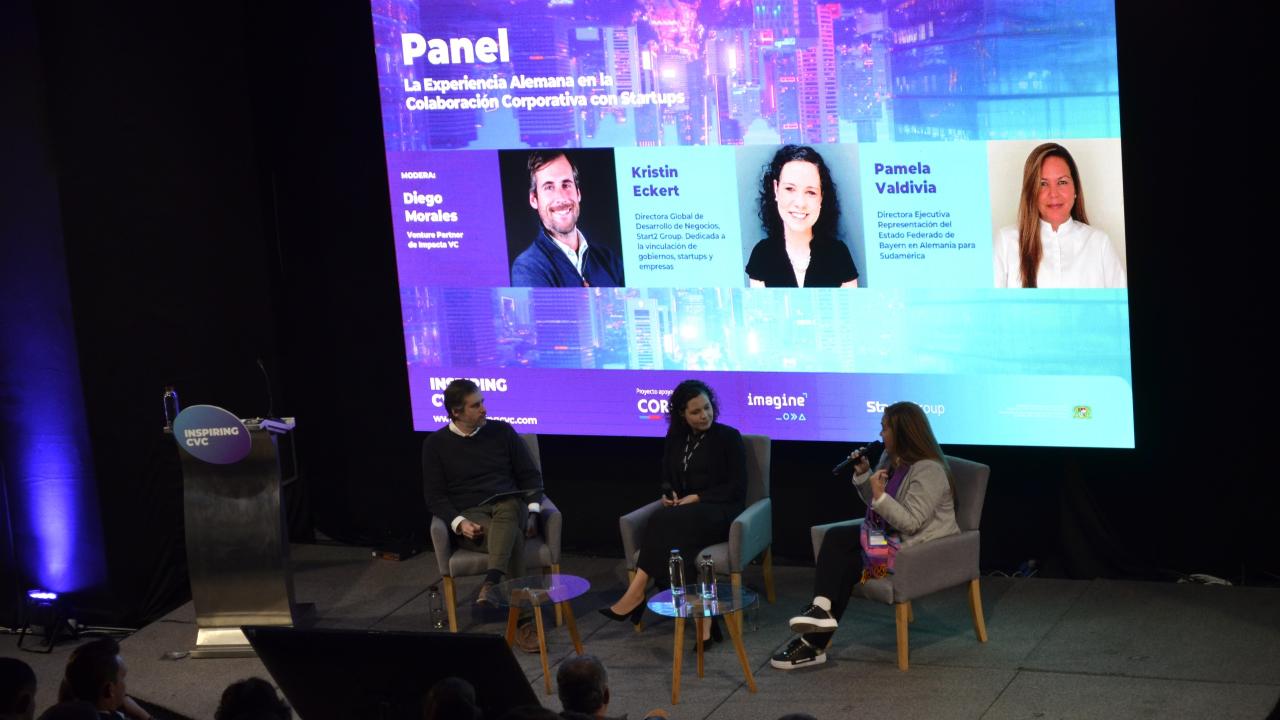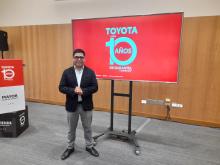
The European country has the means and the Latins have the ideas. The only thing missing is a push for them to become known and global solutions to emerge, say industry players.
“We invented the fax, but we did not patent it. At that time the dominant technology was telex. And today neither of them exist,” says Eduardo Gorch, CEO of Siemens South America, as an anecdote.
The German technology firm has existed for 147 years and wants to remain for many years more, says Gorch.
"That's why I created Next47, a corporate venture capital (CVC) platform that allows you to invest in initiatives and startups that allow you to access new technologies and ideas to always stay at the top of your game," he adds.
His anecdote is told at the opening of the Inspiring CVC event in Latin America, organized in Santiago by the consulting firm Imagine, with the support of the state-owned Corfo, which seeks to bring the private corporate world closer to startups.
“Siemens created Next47 in 2016 precisely to have a reception vehicle. A place to connect with the startup ecosystem with a double purpose: to promote it and also to learn for one's own development and internal innovation, not just external,” Gorch details to AméricaEconomía .
The German firm invests between US$5 billion and US$6 billion annually in research and development, which includes CVC.
Regarding this connection, the CEO considers that Latin America in general, and Chile in particular, have enormous potential.
“Not only because of the unicorns that we already know [from the region], but because of the culture of innovation that exists in our countries,” adds the executive of Argentine nationality, who also works hand in hand with the office of the state of Bavaria in Latin America, focused precisely on putting these two worlds in contact.
That office is led by Pamela Valdivia, who represents the state of Bavaria for five Latin American countries: Chile, Argentina, Colombia, Uruguay and Peru. It is a public entity, dependent on the minister of economy of this German state, that seeks to support German companies located in Bavaria for their businesses in Latin America.
That includes the area of innovation.
“We support both startups from that region that want to come to Latin America to solve a problem, and Latin American startups that are interested in the German region because they consider that there are technological advances that they would like to incorporate into the solutions they develop,” details Valdivia to AméricaEconomía.
It is in this nexus that Pamela sees a budding opportunity: German firms that wish to invest in corporate venture capital by investing in firms in the Latin American region.
But he knows it's not something that will happen immediately.
“We detected that there was a gap in corporate venture capital regarding promotional activities in Latin America,” explains Valdivia.
“In that sense, this is the first event we are doing to highlight the importance of the market in Latin America for CVCs in Germany. And we want to draw your attention to these other ecosystems that are producing startups of a high innovative degree, based on science and technology, which is what the German industry is looking for, and that are super interesting because they solve specific problems of specific industries, therefore , are already very viable and successful, but they eventually need a partner to scale internationally,” explains the executive of Chilean origin.
LATIN AMERICAN VALUE PROPOSITION
Kristine Eckert leads the global business development and strategy for Latin America of Start2, which this private organization uses to serve startups throughout Germany, through a network of universities, investors and other advisors in the startup ecosystem.
There are different programs and funds that help and accelerate local startups in various areas. This is how they have worked for 12 years, sending German startups to Silicon Valley, New York, Boston. And since 2017 to Asia, starting with Singapore, Japan, Korea, India, and China.
“Last year we got the mandate to [reach] South America: Brazil, Chile, Argentina, Paraguay, Uruguay and Bolivia, to help German startups by promoting awareness of market opportunities in the Americas,” Eckert announces.
In terms of CVC they are working with large German flagship companies, such as BMW, and Volkswagen. The objective, to understand what is happening here, what the need really is and if it is a good value proposition to bring the rest of the world to Latin America.
“ 'Made in Germany' has a good reputation (…) we are happy to continue bringing German startups here because that personal interaction changes everything. So that's one part, bringing German startups here, exposing them to the cooperation scene and they have been very open... I feel like sometimes in Latin America they are even more open than we are in Germany, because you see the whole region and not only the country you are active in, but you always have all the regional countries on your agenda, which is quite impressive,” says Kristine Eckart.
From Imagine, meanwhile, they are focused on how to attract the vision from Europe and mainly Germany so that they know the offer of Latin startups, especially Chilean ones.
The firm's goal is to narrow the connection gap between corporations and startups .
“For us, the important thing is that corporations understand what these mechanisms are, how they capture value, what they are looking for in a startup and how to go out and look for it, and vice versa, that startups also understand what collaboration mechanism they should have to show the corporates,” emphasizes Rojas.
His vision is that, given that many times this match between startup and corporate is organic, it results in companies not having clear mechanisms, and the startup does not know in which spaces to negotiate.
“What we are looking for with this initiative is to put on the table what those practices are, what those mechanisms are, what the startup needs to take into account when talking to a corporate, the corporate when approaching the startup, how to receive that message” , he adds.
From that formality, Imagine develops an unexplored niche in the local Chilean startup environment.
While Eckart will focus on all of Latin America, but based in Buenos Aires.
“I try to share what are the exciting opportunities for our German corporate network to also gain some knowledge about the region and step by step convince them to look more here and also invite them to different missions. So we invited someone from the German High Tech Founders Fund, which is a public-private fund. With them, we visited the Expo Agro fair to understand what the Argentine ecosystem is and what the opportunities are,” says the executive.
The goal for everyone is that there is a German corporate venture capital towards Latin America and that it is beneficial in its startup ecosystem and ultimately for the entire society.
“Thus, the startup benefits not only from the financing, which is there, but also with the know-how and the entire administrative structure. And the exposure you have behind a great company. And the company benefits from the culture of innovation. With knowing new ideas that did not occur to us. And eventually yes with integrating that into our own development,” says Eduardo Gorch, from Siemens.
At the same time, the benefit is also given by the integration of two different worlds that can be combined, based on their strengths, thinks Pamela Valdivia, from the Bavaria office. Germany can specially broaden its vision thanks to Latin talent, she adds.
“It is the differences that make us great. You think that the flexibility and creativity of the Latin entrepreneur is unique. And resilience too (...) because entrepreneurship is difficult, and entrepreneurship based on science and technology, on innovation, is even more difficult. So, the passion and DNA that is behind Latin American entrepreneurship is of tremendous value, one that other parts of the world do not have, because they have social systems that support them. So, there is something there that seems to us to be of tremendous value and I believe it is a Latin American advantage,” details the executive.










